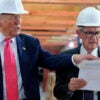Speaking in Miami in May 2008, then-presidential candidate Barack Obama outlined his proposed Cuba policy: “My policy toward Cuba will be guided by one word: Libertad [Liberty]. And the road to freedom for all Cubans must begin with justice for Cuba’s political prisoners, the rights of free speech, a free press and freedom of assembly; and it must lead to elections that are free and fair.”
In his 2009 inaugural address, President Obama said, “To those who cling to power through corruption and deceit and the silencing of dissent, know that you are on the wrong side of history, but that we will extend a hand if you are willing to unclench your fist.”
It is now 2012. The Obama Administration has opened the door for unrestricted travel by Cuban-Americans, a largely unrestricted remittance flow, and more liberal travel for educational and cultural groups. Yet official U.S.–Cuban relations remain stalemated because of the Castro regime’s refusal to unclench its fist and take even the first steps toward true liberty.
Absence of political change in Cuba, many argue, is an insufficient reason to retain the U.S. embargo. Siege warfare against the embargo continues. Many Americans are on the tenterhooks of conscience, suffering from acute symptoms of guilt, democracy fatigue, and loss of self-confidence in American values. Others claim that South Florida Cuban–Americans are losing their political grip. They are quick to assume that more trade, travel, and investment in Cuba will soften the hearts of Cuba’s leaders, not just line their pockets.
It is much easier to apply pressure on the Obama Administration for economic concessions that will ensure an ordered succession from the reign of the Castro brothers to a new generation of still unknown Communist leaders. While most hope a Gorbachev or Deng Xiaoping is waiting in the wings, without democracy they might see a post-Castro hardliner emerge to take charge after Raul.
In May 2008, in his Miami speech, candidate Obama said, “I will maintain the embargo. It provides us with the leverage to present the regime with a clear choice: if you take significant steps toward democracy…we will take steps to begin normalizing relations.”
Americans are smart enough to recognize when a new Cuba begins to emerge from the long nightmare of communist rule. It will occur when Cuba moves away from one-party rule; when suppression of individual rights ends; when a free, uncensored media is able to report on the island’s reality; and when Cuban citizens select their leaders on the basis of consent—not coercion.
On January 21, 2013, President Obama has an excellent opportunity to recommit to his 2008 pledge to work for liberty for the Cuban people, not for concessions to the Castros and their regime.
































